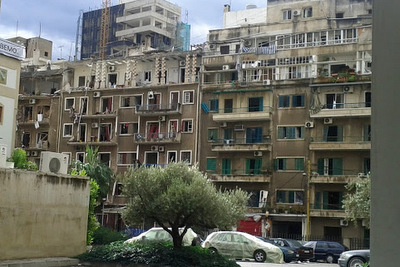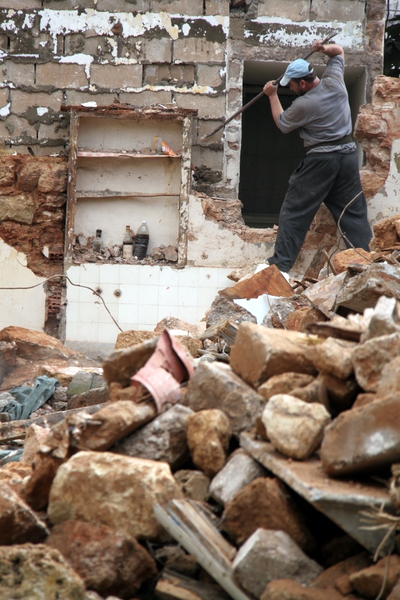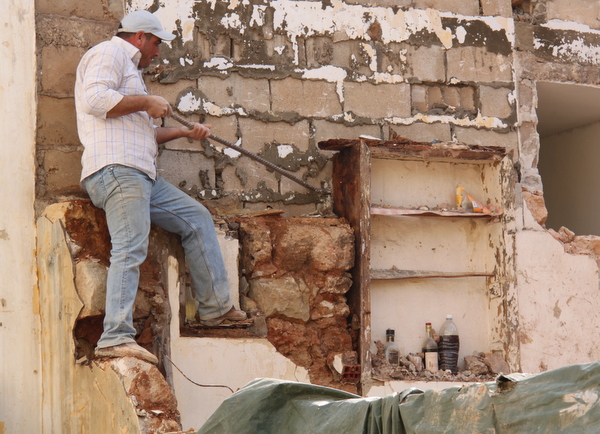Over the past year I have often gazed at a lone house on the slopes of Achrafieh. It is only a lone house by a matter of a few meters, but the tufts of green undergrowth separate it out from the background of concrete colour blocks of flats which flank it. And while bright laundry decorates the balconies of the flats, this house stands quiet and pensive, the door ajar, the window panes gone. Still, it is a perfect foursquare house just waiting for someone to clear out any winged squatters and smarten it up.
Some weeks ago I noticed some roof tiles had come away, exposing the rafters. I checked it anxiously after a stormy night, but nothing had changed. Then, a few sunny days later, there was a gaping hole in the roof. The hole spread a little down the façade day by day. On Tuesday I noticed some men inside through the glass-less windows. As I watched, some bricks were pushed off the first floor and tumbled down the hill. They must be checking out the damage, I thought, or perhaps trying to make it safe so nothing big falls on the neighbours.
On Wednesday they were there again. I could see them clearly because the holes in the façade were bigger. Only this time I watched for a while. They moved from room to room, hitting at the battered window frames and outer wall. With a pole one worked to dislodge large stones in the wall on the ground floor. With the support weakened he was then able to knock down more of the first floor wall.
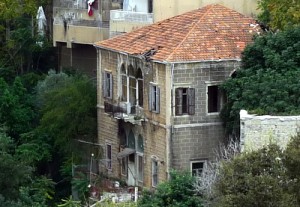
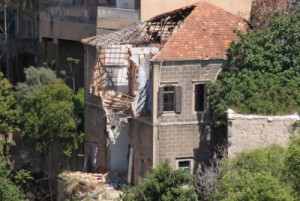
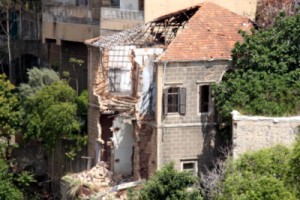
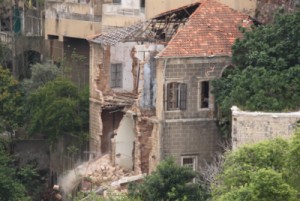
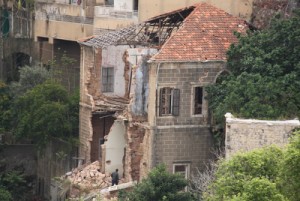
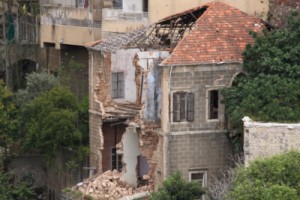
By now it looked like so many of the property ruins hit by mortar shells or rockets during the war. Except it wasn’t. Every day since they have been back to accelerate the erosion of the house.
When a beautiful property in my neighbourhood was bulldozed and replaced by a strip of black tarmac (aka a carpark), I asked the neighbours about it. The storekeeper next door assured me it would be replaced by a new building but that the planning permission would take around five years. What about knocking the place down? I wanted to know. Did anyone get permission for that? The storekeeper was shocked. Of course the developer had had to get permission. One couldn’t get away with such a thing in town. Still, I’ve heard of such things happening.
So now I am wondering why these two men turn up every day, haphazardly knocking the support out from under this roof, then disappear, leaving gravity and the elements to make a difference overnight. Bulldozer access might be difficult, not to mention expensive. But even if the plan was to demolish the building by manpower rather than machines, surely they would come with some tools – a sledgehammer for example. Is the owner really just trying to save money? If you can’t fit machinery up the passageway for the demolition, how will they bring in the machinery necessary to build on the land when the rubble is cleared?
Perhaps someone out there knows this place in Mar Mikhael and has an answer.
